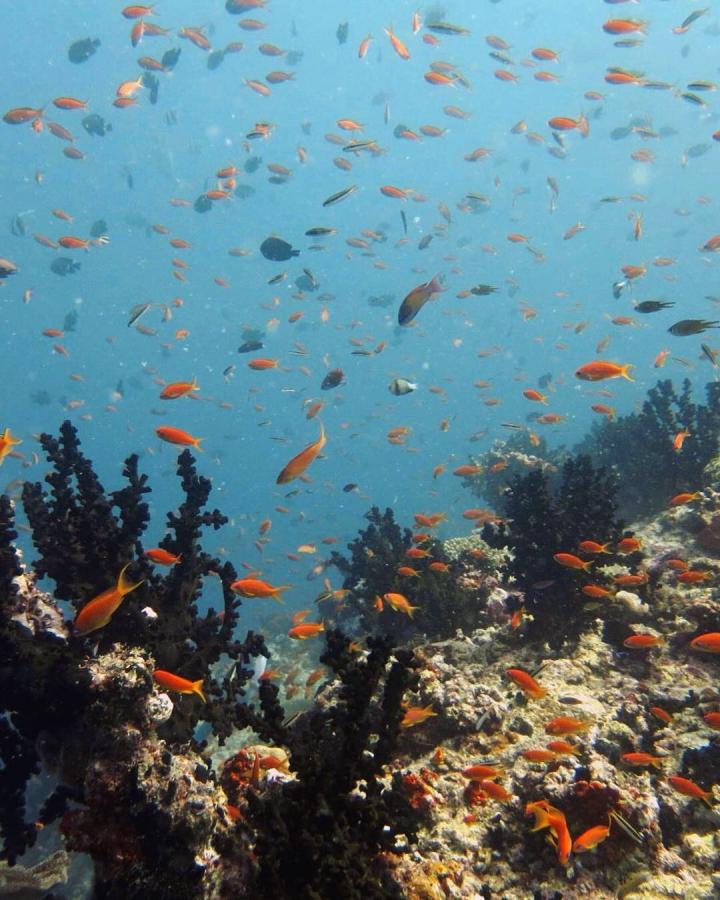Study reveals open ocean waters once assumed to be unproductive are in fact teeming with an abundance of life on coral reefs

Credit: Dr Christina Skinner
Since Charles Darwin’s day, the abundance of life on coral reefs has been puzzling, given that most oceanic surface waters in the tropics are low in nutrients and unproductive.
But now research, led by Newcastle University and published in in the journal Science Advances, has confirmed that the food web of a coral reef in the Maldives relies heavily on what comes in from the open ocean.
The team found that these offshore resources contribute to more than 70% of reef predator diets, the rest being derived from reef associated sources.
Led by Dr Christina Skinner, now based at the Hong Kong University of Science and Technology, the researchers included collaborators from Woods Hole Oceanographic Institution (USA), Banyan Tree Marine Lab (Maldives) and the University of Bristol (UK).
The team used advanced stable isotope techniques to show that four species of grouper near the top of the food web all rely on offshore resources; this didn’t change between species and was the case on the outside of an atoll and also inside the lagoon, suggesting that the oceanic subsidy is system-wide.
The scientists believe that this offshore energy may be entering the food web through lower-level plankton feeding fish that the groupers are then feeding on. This is likely to be supported by inputs of nutrient-rich deep water, which are little understood.
The findings help explain how coral reefs maintain high productivity in apparently nutrient-poor tropical settings, but also emphasise their susceptibility to future fluctuations of ocean productivity which have been predicted in many climate-change models.
Dr Skinner said: “The study provides key insights into the nutrition of coral reef ecosystems, especially their dependence on offshore production. Detailed knowledge of food web dynamics is crucial to understand the impacts of anthropogenic and climate-induced change in marine ecosystems.
“The results force us to reconsider how we view coral reefs, and they highlight the extent of the connectivity with the surrounding ocean. If these groupers are mostly reliant on offshore energy to support their feeding, then maybe they won’t be so impacted by the loss of live coral, as many fishery studies have predicted; they may be more resilient.
“On the other hand though, some studies have predicted that ocean production will decline in the future from climate change. If that is the case, and these groupers are reliant on that open ocean energy, they will be impacted by those changes.”
Study co-author, Professor Nick Polunin, from Newcastle University’s School of Natural and Environmental Sciences, added: “Coral reefs are really suffering across the tropics from climate-related disturbances, particularly oceanic warming.
“In spite of its tiny area, this ecosystem is a massive contributor to marine biodiversity and this study highlights how little we know about the food web sources sustaining that exceptional wealth of species it sustains.”
###
Media Contact
Ivan Lazarov
[email protected]
Related Journal Article
http://dx.




